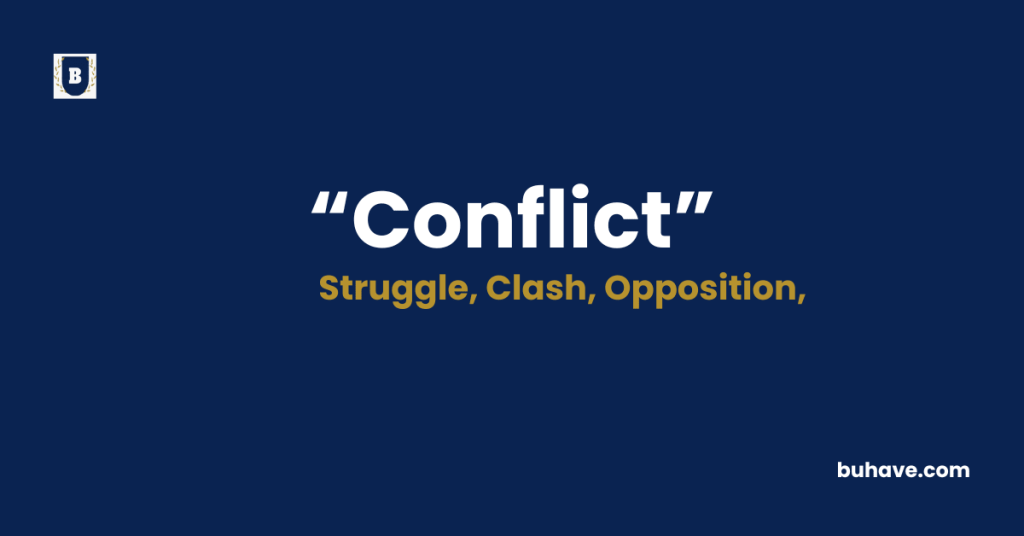The word ‘Conflict’ (Noun) refers to a serious disagreement, struggle, or clash between opposing ideas, people, or forces. In this guide, you’ll explore the full definition, etymology, usage, examples, synonyms, antonyms, and frequently asked questions about ‘Conflict’.
Conflict Explained in Depth
A complete and detailed guide to the word ‘Conflict’ including meaning, definition, examples, etymology, synonyms, and antonyms.
Meanings of Conflict
Conflict can mean a mental struggle, a clash between individuals or groups, or a state of opposition between ideas or interests. As a verb, it means to be in opposition or to clash. It’s often used in contexts involving tension, disputes, war, or inner turmoil.
Definition
Conflict is defined as a serious disagreement or argument, typically a prolonged one. It can also refer to an incompatibility between two or more opinions, interests, or principles. In literature, it denotes the central struggle that drives the narrative.
Etymology
The word “conflict” comes from the Latin conflictus, meaning “a striking together,” from confligere — “to strike together, clash.” The term entered Middle English through Old French and has maintained its association with clashes or opposition.
Example Sentences
- The two nations were locked in a bitter conflict for over a decade.
- There is an ongoing conflict between economic growth and environmental protection.
- She felt inner conflict over whether to follow her passion or take the secure job.
- His schedule conflicts with the meeting time.
Conflict Synonyms
- Dispute
- Clash
- Struggle
- Battle
- Fight
- Disagreement
- Tension
- Opposition
- Confrontation
- Altercation
Conflict Antonyms
- Peace
- Harmony
- Agreement
- Understanding
- Accord
- Unity
- Reconciliation
- Truce
- Concord
- Cooperation
FAQs about Conflict
Here are some frequently asked questions (FAQs) about the word “Conflict”
1. What types of conflict exist?
Common types include interpersonal conflict, internal conflict, organizational conflict, and international conflict. Literary conflict includes man vs. man, man vs. nature, man vs. self, and more.
2. Is conflict always negative?
Not always. Conflict can lead to growth, change, and new ideas. Healthy conflict, especially in relationships or teams, can improve understanding and performance.
3. How do you resolve conflict?
Resolution involves communication, empathy, compromise, and problem-solving. Mediation or negotiation may also help settle more serious disputes.
4. Can conflict be internal?
Yes. Internal conflict occurs within a person, often involving moral dilemmas, emotional struggles, or difficult decisions.
5. How is conflict used in literature?
In stories, conflict drives the plot. It’s the central tension that characters must overcome, whether against others, society, nature, or themselves.

















